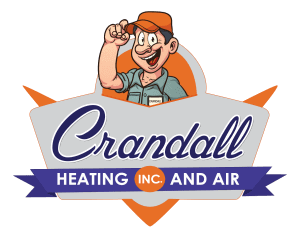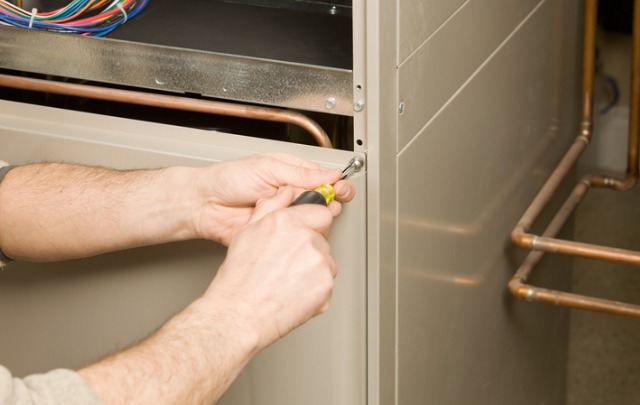7 Tips You Need to Prepare Your HVAC System for Fall
Before cooler weather arrives in Greenville, you should take measures to prep your HVAC system. Before you need new HVAC installation services, give your system the TLC it deserves. You may be able to extend the life of your heater and keep it working well all fall and winter long.
1. Check Your Filters
During the summer, pollen, hair, and dust end up in your HVAC system. The filters catch many of the particles, and they start to become clogged. As the debris piles up, your system needs to work overtime to cool your home.
In the winter, your filters need to be ready to work. This means they need to be replaced with new, clean filters. If you don’t clean your filters in the fall, your HVAC will need to work harder than it should all winter long. When you try to heat your home, your HVAC could be pushing itself too hard.
Even if you use a separate heating system for your home, you should still check or clean the filters. You want your AC to be ready to run when the winter is over. If you don’t clean your filters now, you might forget to do it later.
2. Seal Leaks
More air leaks out of your home than you know. If you have an older home, you probably lose a significant amount of cooled or heated air through gaps around your windows and doors. Even new homes have some degree of lost air.
If you don’t want to waste money on your winter heating bill, you should caulk around your windows and doors. You can also use weather-stripping. To make sure air isn’t leaking from your ducts, you can consult with an HVAC technician. A duct inspection could identify several leaky joints.
3. Clean Up the Condenser
During the fall, leaves and sticks may end up in or near your condenser. Do a quick visual inspection and remove any debris in the area. If tall grass or leaves are too close to the unit, they’ll reduce the air flow.
You should also look for signs of damage. Did an object fall on your exterior unit? If anything seems bent or out of place, call an HVAC technician immediately. You may be able to prevent further issues.
4. Check Your Alarms
Before you start up your heating system, you should have safeguards in place to limit the risk of fire and carbon monoxide poisoning. Check your smoke and carbon monoxide detectors for batteries. If they are old or don’t seem to work, replace them with new ones.
One common misconception is that these alarms last forever. However, you should replace your alarms every ten years. You can find the manufacture date on the back of the detector. When you test the detector, push the button and watch for the light.
5. Do Some Yard Work
Although you might not have spent much time on yard maintenance this fall, your break is over. You should do yard work to remove branches and trees that could pose a threat to your condenser.
Explore the area near the exterior unit, and look for potential hazards. If there’s a large tree near the unit, a branch could fall on it. It doesn’t take much snow to knock down a tree branch, so you might want to trim down all of your dead branches.
6. Run Your Heater
One of the biggest mistakes you could make is to forget to run your heater before the winter arrives. If you wait until you really need it, your heater might not work. It’s always a good idea to run your heater before the temperature drops.
When you run your heater, pay attention to anything unusual. It will probably smell strange for a few minutes, but you shouldn’t notice a burning smell or strange noises. If you don’t get help before winter arrives, you might find it difficult to get an appointment. You also face the inconvenience of living in the cold.
7. Schedule Maintenance
By far, the best thing you can do for your HVAC system in the fall is to schedule routine maintenance. At least twice a year, you should have an expert look at your heating and cooling system. They’ll inspect every component of your system and make adjustments to improve its efficiency.
During a maintenance call, your technician might notice a minor issue.
Frequently Asked Questions:
How Do I Prepare My HVAC for Fall?
If you want to prevent the need for residential air conditioning repair, you should get your HVAC system ready for the cooler weather. Following all of the tips above can prepare your heating and cooling system, as well as improve your air quality. If your HVAC is beyond repair, you may need a residential boiler installation. Whatever your needs may be, you can count on us for help. We offer residential heat pump installation and maintenance to keep your system warming you up all winter long.
How Do I Prepare My HVAC for Spring?
After the winter is over, you need to get your HVAC system ready for the spring. This means getting a residential or commercial air conditioning installation if necessary or getting routine maintenance. You should follow many of the same tips above, such as changing out your filters. However, you should also check your outside condenser unit for debris and make sure your AC is ready to cool your home.
What is the Difference Between AC and HVAC?
The term “AC” refers to your air conditioner. However, “HVAC ” refers to your heating, ventilation, and air conditioning system. It doesn’t just cool your home but heats it as well. One often overlooked component of the HVAC is air quality. A reputable company offers indoor air quality services in addition to their other services.
Call Us for HVAC Installation Services
Whether you need HVAC installation services in Greenville or just routine maintenance, you can count on us at Crandall. Call us today and find out what we can do for your HVAC system.
Follow our Facebook page for fun updates or subscribe to our monthly newsletter for all your HVAC needs.
Monthly Newsletter Subscription
Subscribing to Crandall Heating & Air’s Monthly newsletter for specials, educational content, and social media updates.



